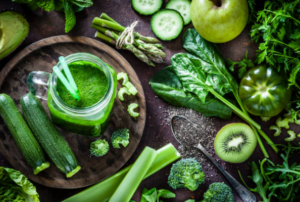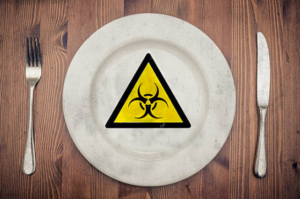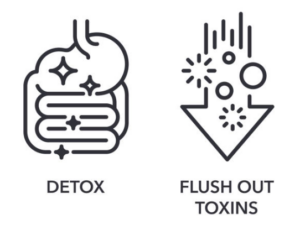The Science Behind Why They May Do More Harm Than Good

In recent years, the allure of detox diets has captured the imagination of many seeking to improve their health and vitality. From celebrity endorsements to social media influencers, the idea of cleansing the body of toxins through specific dietary regimens has gained widespread popularity. However, behind the glitz and glamour lies a complex scientific landscape that suggests detox diets may not deliver the promised benefits and could even pose risks to one’s health. In this comprehensive guide, we delve into the science behind detox diets, debunking common myths and shedding light on why they may do more harm than good.
Understanding Detox Diets
Detox diets typically involve the consumption of specific foods, drinks, or supplements aimed at eliminating toxins from the body. Proponents claim that these toxins, which supposedly accumulate from pollutants, processed foods, and other environmental factors, can wreak havoc on our health, leading to fatigue, weight gain, and various diseases. To combat this perceived threat, detox diets often advocate for the exclusion of certain food groups, such as dairy, gluten, sugar, and caffeine, while promoting the intake of detoxifying agents like lemon water, herbal teas, and green juices.
Part of the allure of detox diets lies in their promise of quick fixes and dramatic results. In a society obsessed with instant gratification and flawless aesthetics, the idea of “cleansing” the body and achieving rapid weight loss can be incredibly appealing. Furthermore, the endorsement of detox diets by celebrities and influencers adds to their perceived legitimacy, creating a sense of FOMO (fear of missing out) among those who aspire to emulate their idols.
Debunking the Myths
Myth #1: Detox diets eliminate toxins from the body.
Reality: The human body possesses remarkable detoxification mechanisms primarily centered around the liver, kidneys, lungs, skin, and lymphatic system. These organs work in harmony to neutralize and eliminate toxins and waste products from the body. The liver, in particular, employs a two-phase process known as detoxification, where harmful substances are converted into water-soluble compounds that can be easily excreted.
While some proponents of detox diets claim that specific foods or supplements can enhance these natural detoxification processes, there is limited scientific evidence to support such assertions. In fact, the body’s detoxification pathways are finely tuned and do not require external interventions to function optimally. Moreover, the notion of “toxins” is often nebulous and ill-defined in the context of detox diets, leading to misleading claims and confusion among consumers.
Instead of focusing on restrictive dietary regimens, individuals can support their body’s natural detoxification processes by adopting a balanced diet rich in fruits, vegetables, whole grains, lean proteins, and healthy fats. Adequate hydration, regular exercise, and sufficient sleep are also essential for maintaining optimal detoxification and overall health.
Myth #2: Detox diets promote weight loss.
Reality: While it’s true that detox diets may lead to short-term weight loss, primarily due to calorie restriction and water loss, this weight loss is often unsustainable and may even be detrimental to one’s health in the long term. Many detox diets advocate for severe caloric restriction and the exclusion of entire food groups, which can disrupt metabolism and lead to muscle loss, rather than fat loss.
Furthermore, any weight lost during a detox diet is likely to be regained once normal eating patterns are resumed, leading to a cycle of yo-yo dieting and potential negative impacts on metabolic health. Sustainable weight loss is best achieved through gradual changes in dietary habits, regular physical activity, and adopting a balanced approach to eating that prioritizes nutrient-dense foods and portion control.
Myth #3: Detox diets improve skin health.
Reality: Proponents of detox diets often claim that eliminating certain foods, such as dairy, gluten, and sugar, can lead to clearer, glowing skin. While diet undoubtedly plays a role in skin health, the relationship between specific foods and skin conditions is complex and varies from person to person.
While some individuals may experience improvements in their skin after adopting a detox diet, this is likely due to factors other than detoxification, such as increased hydration, reduced intake of processed foods, and higher consumption of fruits and vegetables. However, restrictive diets that eliminate entire food groups can also lead to nutrient deficiencies, which may exacerbate existing skin conditions or compromise skin health in the long term.

The Science Behind Detoxification
To understand why detox diets may do more harm than good, it’s essential to delve into the science of detoxification. The body’s natural detoxification processes are incredibly sophisticated and multifaceted, involving a complex interplay of enzymes, antioxidants, and cellular pathways.
The Liver: Often referred to as the body’s detox powerhouse, the liver plays a central role in metabolizing and eliminating toxins from the body. Through a series of enzymatic reactions, toxins are broken down into less harmful substances that can be excreted via urine or bile. However, the liver requires adequate nutrients, including vitamins, minerals, and amino acids, to function optimally.
The Kidneys: In addition to the liver, the kidneys play a crucial role in filtering waste products from the blood and excreting them in the form of urine. Proper hydration is essential for kidney function, as it helps flush out toxins and prevent the buildup of waste products in the body.
Antioxidants: Antioxidants are compounds that help neutralize free radicals, harmful molecules that can damage cells and contribute to aging and disease. Many fruits, vegetables, and herbs are rich in antioxidants, making them valuable additions to a balanced diet.
Cellular Detoxification Pathways: Within our cells, various detoxification pathways work together to remove harmful substances and maintain cellular homeostasis. These pathways rely on specific enzymes and co-factors, which are often derived from essential nutrients found in food.

The Risks of Detox Diets
Nutrient Deficiencies: One of the most significant risks associated with detox diets is the potential for nutrient deficiencies. Many detox plans advocate for the exclusion of entire food groups, such as grains, dairy, or protein sources, which can lead to inadequate intake of essential nutrients like vitamins, minerals, and protein. For example, eliminating dairy products can result in calcium deficiency, while cutting out grains may lead to a shortfall in B vitamins and fiber.
Furthermore, some detox diets promote extreme calorie restriction or prolonged fasting, which can exacerbate nutrient deficiencies and compromise overall health. Prolonged deprivation of essential nutrients can lead to fatigue, weakness, impaired immune function, and other health problems.
Disordered Eating Patterns: Detox diets often promote rigid rules and restrictions around food intake, which can contribute to the development of disordered eating patterns. Individuals may become preoccupied with food, experience feelings of guilt or shame around eating, or develop an unhealthy obsession with “clean” eating.
Orthorexia nervosa, a condition characterized by an unhealthy fixation on eating “pure” or “clean” foods, is a particular concern associated with detox diets. People with orthorexia may become increasingly restrictive in their food choices, leading to social isolation, malnutrition, and impaired psychological well-being.
Electrolyte Imbalances: Certain detox diets promote the use of diuretics or laxatives to “flush out” toxins from the body, which can disrupt electrolyte balance and lead to dehydration. Electrolytes, such as sodium, potassium, and magnesium, play a crucial role in maintaining fluid balance, nerve function, and muscle contractions.
Excessive fluid loss through diuretic use can lead to electrolyte imbalances, which may manifest as symptoms such as muscle cramps, dizziness, irregular heartbeat, and even seizures in severe cases. Prolonged electrolyte imbalances can have serious consequences for cardiovascular health and overall well-being.
Gastrointestinal Distress: Abrupt changes in diet, such as sudden increases in fiber intake or the elimination of certain food groups, can disrupt gut microbiota and lead to gastrointestinal distress. Symptoms such as bloating, gas, diarrhea, and constipation are common side effects of detox diets, particularly those that emphasize raw fruits and vegetables or high-fiber foods.
Furthermore, detox diets that promote the use of laxatives or colon cleanses can irritate the gastrointestinal tract and disrupt bowel function. Long-term reliance on these methods can lead to dependence, nutrient malabsorption, and damage to the intestinal lining.
Muscle Loss and Metabolic Damage: Many detox diets promote rapid weight loss through severe calorie restriction, which can result in muscle loss and metabolic damage. When the body is deprived of adequate calories and protein, it may turn to muscle tissue for energy, leading to muscle wasting and a decline in metabolic rate.

Additionally, prolonged calorie restriction can disrupt hormone levels, particularly those involved in metabolism and appetite regulation. This can make it harder to maintain weight loss over time and increase the risk of regaining lost weight once normal eating patterns are resumed.
In conclusion, while detox diets may hold appeal for those seeking quick fixes and dramatic results, the science behind them paints a different picture. Far from being a panacea for health and vitality, detox diets may do more harm than good by promoting restrictive eating patterns, nutrient deficiencies, and other adverse health effects. Rather than relying on short-term solutions, a balanced diet rich in whole foods, adequate hydration, and regular physical activity is key to supporting the body’s natural detoxification processes and promoting long-term health and well-being. As always, it’s essential to consult with a qualified healthcare professional before making any significant changes to your diet or lifestyle.

